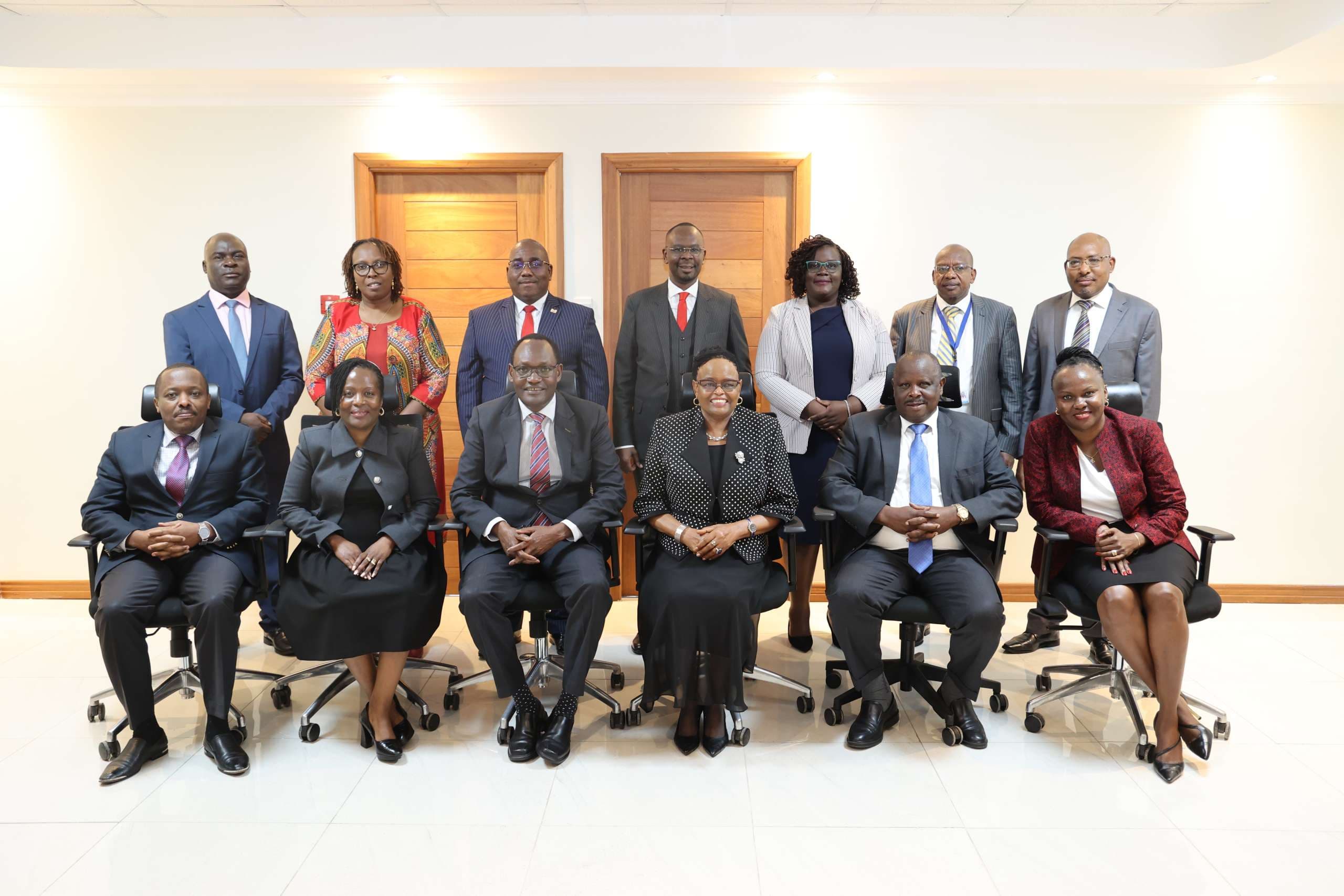We're loading the full news article for you. This includes the article content, images, author information, and related articles.
The Judicial Service Commission and the National Treasury have committed to expediting the operationalisation of the Public-Private Partnerships Petition Committee and enhancing budgetary support for the Judiciary, aiming to improve service delivery and ensure fair procurement processes.

The Judicial Service Commission (JSC) and the National Treasury held a high-level meeting in Nairobi on Wednesday, October 1, 2025, agreeing to fast-track the operationalisation of the Public-Private Partnerships (PPP) Petition Committee. The discussions also focused on the critical need for increased budgetary allocation to the Judiciary and the JSC to bolster service delivery across the country.
The meeting brought together key figures, including JSC Vice Chairperson Isaac Ruto, Commissioner Evelyne Olwande (who chairs the JSC Finance Committee), and Chief Registrar of the Judiciary and Secretary Winfridah Mokaya. They engaged with Treasury Cabinet Secretary John Mbadi and Principal Secretary Chris Kiptoo.
The Public-Private Partnerships Petition Committee is a crucial body established under Section 67 of the PPP Act, 2013. Its primary role is to receive and resolve complaints related to the procurement of PPP projects in Kenya, acting as a tribunal to promote fairness and transparency. The committee's guidelines were published in 2014 to support its functioning and guide petitioners. In February 2021, four new members were sworn into the committee, joining former Attorney General Prof. Githu Muigai.
The operationalisation of this committee is vital for ensuring accountability and transparency in the numerous infrastructure and development projects undertaken through PPPs, which are increasingly seen as a way to finance Kenya's Vision 2030 agenda. Analysts suggest that expediting this process could significantly influence public debate and policy execution regarding PPPs, with stakeholders seeking clarity on timelines, costs, and safeguards.
The Public Private Partnerships Act, 2013, provides the legal framework for private sector participation in financing, constructing, developing, operating, or maintaining government infrastructure and development projects. The Act also established institutions to regulate, monitor, and supervise the implementation of these projects, including the Petition Committee. The Public Private Partnerships Act, 2021, further empowered county governments to play a larger role in PPP policy formulation and implementation, and to nominate members to the PPP Petitions Committee.
Delays in operationalising the PPP Petition Committee could lead to prolonged disputes in PPP projects, potentially deterring private investment and hindering the timely completion of critical infrastructure. Insufficient budgetary support for the Judiciary could compromise its ability to deliver justice efficiently, impacting case backlogs and overall access to justice for Kenyans. The JSC has previously frozen recruitment due to budget constraints, highlighting the direct impact of funding on judicial capacity.
Stakeholders will be closely monitoring the concrete steps taken by both the JSC and the National Treasury to implement the agreements. Key areas to watch include the issuance of specific timelines for the PPP Petition Committee's full operationalisation and any announcements regarding increased budgetary allocations for the Judiciary in upcoming financial reviews.
Keep the conversation in one place—threads here stay linked to the story and in the forums.
Sign in to start a discussion
Start a conversation about this story and keep it linked here.
Other hot threads
E-sports and Gaming Community in Kenya
Active 9 months ago
The Role of Technology in Modern Agriculture (AgriTech)
Active 9 months ago
Popular Recreational Activities Across Counties
Active 9 months ago
Investing in Youth Sports Development Programs
Active 9 months ago
Key figures and persons of interest featured in this article